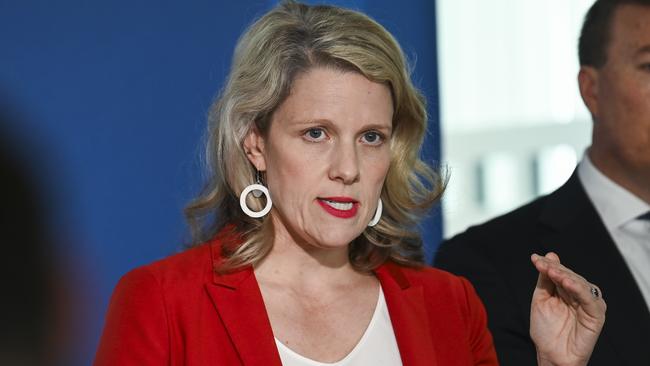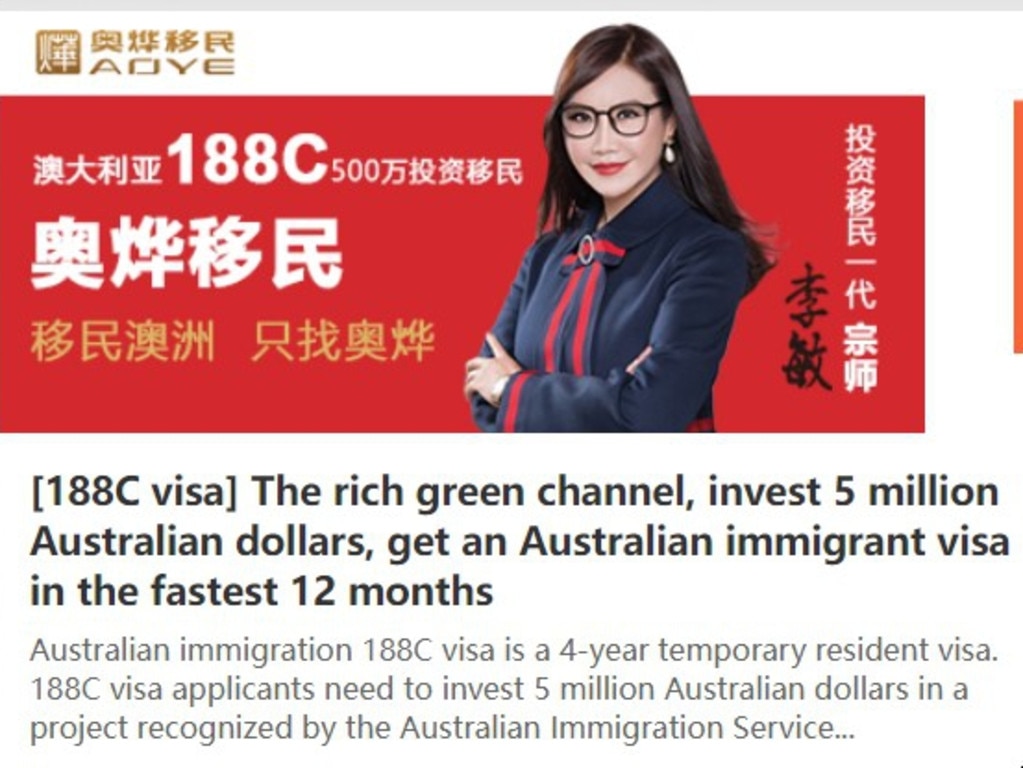Labor faces pushback on ‘golden visas’ crackdown
The Productivity Commission has welcomed the axing of the ‘lucky 888’ investment visa program, but the multibillion-dollar visa industry is fighting back.

The Productivity Commission has welcomed the scrapping of the “golden visa” business program, saying the scheme had not promoted innovation or genuine entrepreneurship, but Labor faces a strong pushback from the multibillion-dollar investment visa industry over the axing.
Productivity Commission deputy chair Alex Robson said that while the Business Innovation and Investment Program visas were intended to attract foreign investment, they had not achieved this outcome and had failed to promote innovation or genuine entrepreneurship.
“Compared to skilled worker visa holders, migrants using BIIP visas have lower incomes, lower skills, poorer English language proficiency and are older,” Mr Robson told The Australian, adding that evidence suggests the visas were associated with “significant negative fiscal impacts”.
On Monday The Australian revealed the entire Business Innovation and Investment Program has been quietly closed to new applications over claims it has had a profoundly negative impact on the economy.
Home Affairs Minister Clare O’Neil said on Monday the red-carpet visa program was part of a “broken” migration system Labor had inherited.
“It has been obvious for years that this visa is not delivering what our country and economy needs from a migration system,” Ms O’Neil said.
“The investor visa is one of many aspects of the system which we are reforming to create a system which delivers for our country.”

The BIIP scheme, which makes up a quarter of all migration allocations, included a Significant Investor Visa allowing wealthy foreigners an automatic right of permanent residence in Australia if they make investments of at least $5m.
It targeted Chinese citizens, with the visa subclass given the number 888 – which signifies triple good luck in Chinese numerology.
The abolition of the BIIP schemes has angered many in the multibillion-dollar investment visa industry, where fund managers, migration agents, banks and specialist firms have reaped huge rewards for more than a decade.
Some industry sources were confident a form of the Significant Investor Visa would be retained under a new name and with new conditions, probably requiring a minimum investment of $10m into more targeted venture capital projects.
The visa has been widely criticised because investors could gain citizenship even if they spent only 40 days a year in Australia and, unlike other visa holders, were not required to learn or speak English. There was also no upper age limit.
The government has foreshadowed that a much more tightly controlled Talent and Innovation Visa would create a single, streamlined pathway “to attract relatively small numbers of highly talented migrants to Australia”.
The crackdown follows revelations by The Australian that foreign criminals and corrupt regime officials have used the red-carpet schemes to acquire Australian citizenship.
Immigration lawyer Chris Johnston, from Work Visa Lawyers, said the government had closed the program “by stealth” and argued the BIIP visas were “a huge benefit to Australia in terms of bringing in capital, which is put into complying investments and those benefits are not going to be gained if the program’s not open”.

The Migration Review, spearheaded by public service chief Martin Parkinson, found that skilled migrants contribute $300,000 more in benefits over their lifetime than those who buy their way into the country.
But Mr Johnston said the Parkinson Review had wrongly measured the economic benefit to Australia because it looked just at the personal income tax paid by business and investor visa applicants but didn’t measure what tax was paid on the investments that they made, or measure the benefits of the investments that they made.
Mr Johnston said the government already had the power to investigate applicants and the source of their funds so axing the program to stop wealthy foreign criminals obtaining visas was “an overblown reaction”.
He argued that instead of the visas being scrapped, investor funds could be directed to an affordable housing stream to help the housing crisis, which is currently the biggest drag on the migration system.
“We shouldn’t just be saying ‘it’s not working, let’s get rid of it’, we should be asking how to make it fit the needs of Australia right now, in 2024,” Mr Johnston said.







To join the conversation, please log in. Don't have an account? Register
Join the conversation, you are commenting as Logout